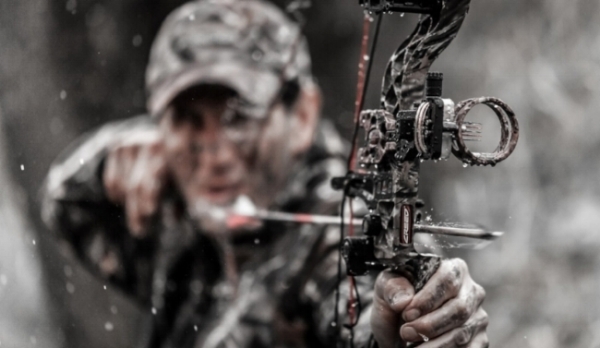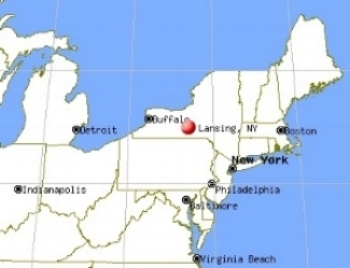As the nation embarks upon a period of turbulent political, historical and legal transition, some experts warn that Freedom of Information and government transparency may be largely eviscerated under the Trump regime. A pending lawsuit in New York could have critical implications for government transparency and its role in safeguarding the public.
Youtube
LaVeck v. Lansing
City-Data.com
In October, the Center for Wildlife Ethics (CWE), in collaboration with the advocacy group CayugaDeer.org, argued an appeal in the Third Department Appellate Division (LaVeck v. Village Board of Trustees of the Village of Lansing) asserting the public’s right to know when and where government-authorized, life-threatening activities are being carried out in neighborhood backyards.
Like many communities in New York, the Village of Lansing (a suburb of Ithaca, NY) has claimed an overpopulation of white-tail deer and opted to kill large numbers of these animals. Working with interested staff members and hunting enthusiasts at Cornell University, the Village has secured the permission of some Lansing property owners to allow hand-picked bow hunters to kill deer on their property.
Lansing’s “Deer Management Program” has worried some residents and members of nearby communities who fear that their families or animals may be injured or killed by amateur hunters. This concern is further compounded by the Village’s failure to provide any cautionary warning about the time or place weapons are being discharged.
Alleged safety and privacy concerns with no factual basis
Under the Freedom of Information Law (FOIL), records are presumed to be public and subject to mandatory disclosure except in a handful of narrow and well-defined exemptions. In January 2015, documentary filmmaker James LaVeck, submitted a FOIL request for records dealing with Lansing’s deer management activities.
Nearly a month later, the Village informed LaVeck that several hundred pages of responsive records were available, but had been redacted (i.e., partially “blacked-out”) to protect against an alleged “unwarranted invasion of personal privacy” and that if disclosed, would supposedly “endanger the life or safety of persons.”
LaVeck submitted a Village-level appeal, but Lansing’s Mayor offered no further explanation for the denial or clarification as to whose safety and privacy the Village was trying to protect. Left with no remedy at the Village level, LaVeck opted to litigate Lansing’s decision to cloak its deer killing program in secrecy.
In litigation, it became evident that the Village had no factual basis for withholding the records and no actual safety risk existed. Rather, to support the invasion of privacy and endangerment exemptions, Lansing produced an affidavit from the Village Clerk, claiming she was generally “informed” of some controversy over deer management policies and alleged threats made years ago in a different village.
To clarify, there was absolutely no basis for Lansing to redact responsive records. FOIL’s express language places the burden of proof squarely on the governmental body issuing the denial. Ultimately, the Village, in a desperate attempt to justify nondisclosure of public records simply borrowed an alleged controversy from years earlier in a nearby municipality consisting of vague and unsubstantiated allegations of threats.
Village of Lansing
Perhaps even more troubling was the Village’s position that mere controversy or disagreement surrounding a governmental activity legally shields those records from public scrutiny.
Open government discarded for political convenience
Freedom of Information exists precisely to ensure that the people can observe and evaluate what their public servants are up to, whether it is mundane, sensational or anything in between. To conceal its deer killing records, the Village put forth a defense that was tantamount to arguing that its activities were “too controversial” to disclose where, when, and how they would take place.
The consequences of this cynical stance on open government, if applied broadly, are staggering.
Defying all commonsense and flouting abundant legal precedent that is clearly contrary to Lansing’s policy of opaqueness, the Village prevailed in the lower court. This not only set the stage for a fascinating appeal, but also transformed the case from one of primarily local concern to a matter with critical statewide consequences.
What about the safety of unknowing bystanders?
Leaving aside, momentarily, the Village’s flimsy and unsupported arguments, the lower court utterly ignored the possibility of endangerment resulting from the Village’s failure to disclose the records. Due to the administration’s secrecy, Village residents, visitors and their families could regularly find themselves in close proximity to individuals discharging weapons with no warning.
Rutgers NJAES
In arguing this matter at the Appellate Division in Albany, CWE wildlife attorney Trevor DeSane stressed to the panel of judges that this case “could represent a landmark in establishing the public’s right to know the details of when and where municipal deer shooting is taking place in neighborhood backyards.” DeSane further argued “the very critical public interest in disclosure that exists in Lansing will exist in any community statewide that is the site of a similar program.”
The simple and compelling reasons that full disclosure of nearby shooting is good public policy are numerous and easily understood. Like other inherently dangerous activities, discharging weapons is unquestionably safer when individuals in the vicinity are aware of when and where it is taking place so they can take all possible precautions to protect their families and pets.
Some residents might choose to stay out of their backyards or keep their children inside when amateur hunters are traipsing around on adjacent property shooting at deer. Others might think twice about jogging on a specific road when shooting is scheduled. Still others might close their curtains to avoid the trauma of their child witnessing a mortally wounded and suffering animal fleeing a shooter.
Failure to disclose details of shooting activities can result in tragedy
While Lansing stubbornly guards against disclosure of public information, LaVeck’s attorney argues that Village officials are flirting with an inexcusable tragedy: “In the real world, where bowhunters are discharging deadly weapons in close proximity to people, homes, schools, and roadways, this obsession with secrecy could literally kill or maim someone.”
LaVeck’s appeal has broad safety implications for all New Yorkers as well as obvious legal interest for advocates of open government. As DeSane stressed, “The court’s decision should uphold FOIL and acknowledge the very real public safety concerns that result from declaring entire areas of government activity off limits to the public. The only alternative would be a decision that legitimizes Lansing’s dangerous position and gives local governments a blank check to shroud their activities in secrecy, with no consideration of the consequences, whenever those activities are contentious or unpopular.”



